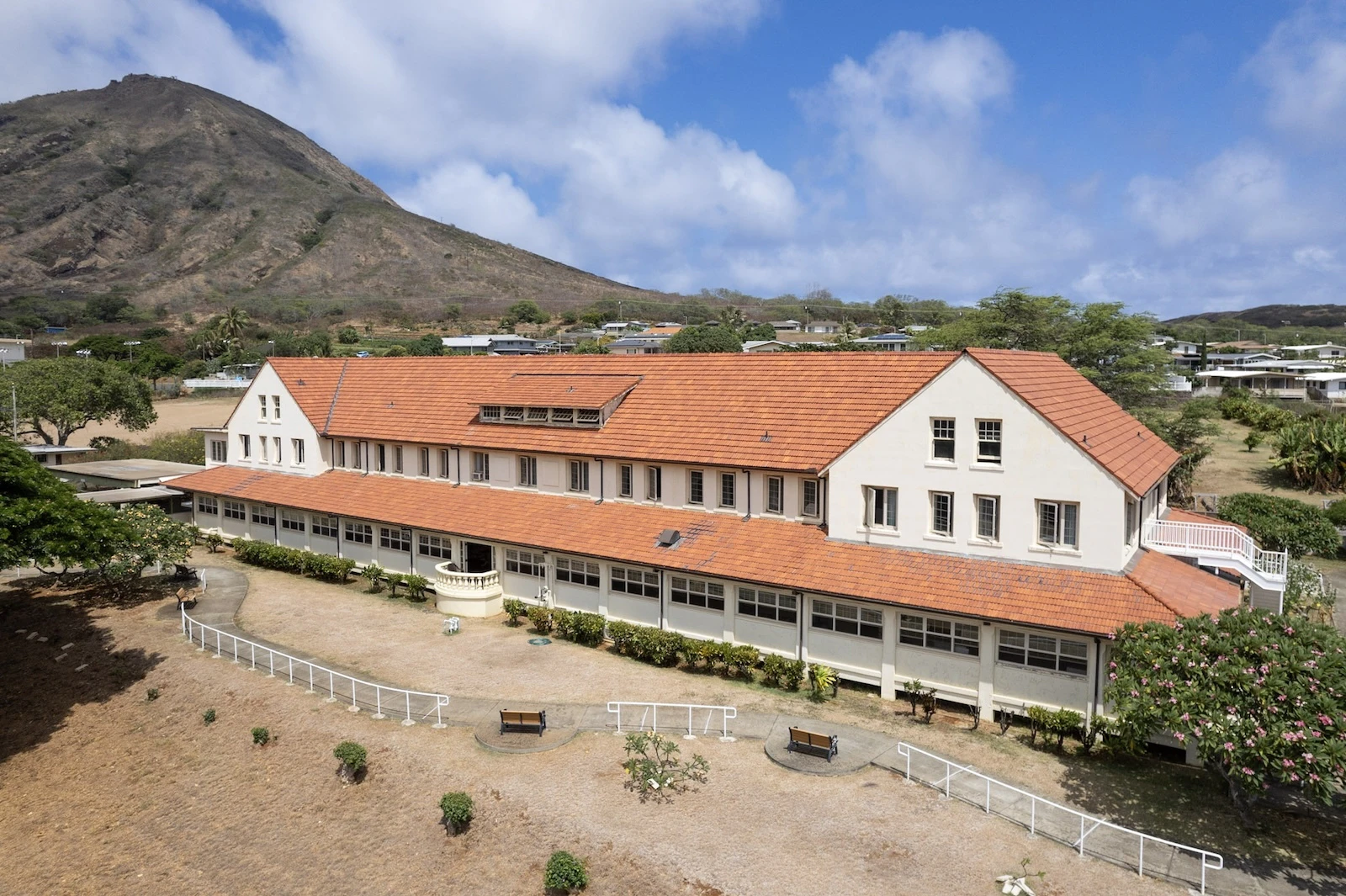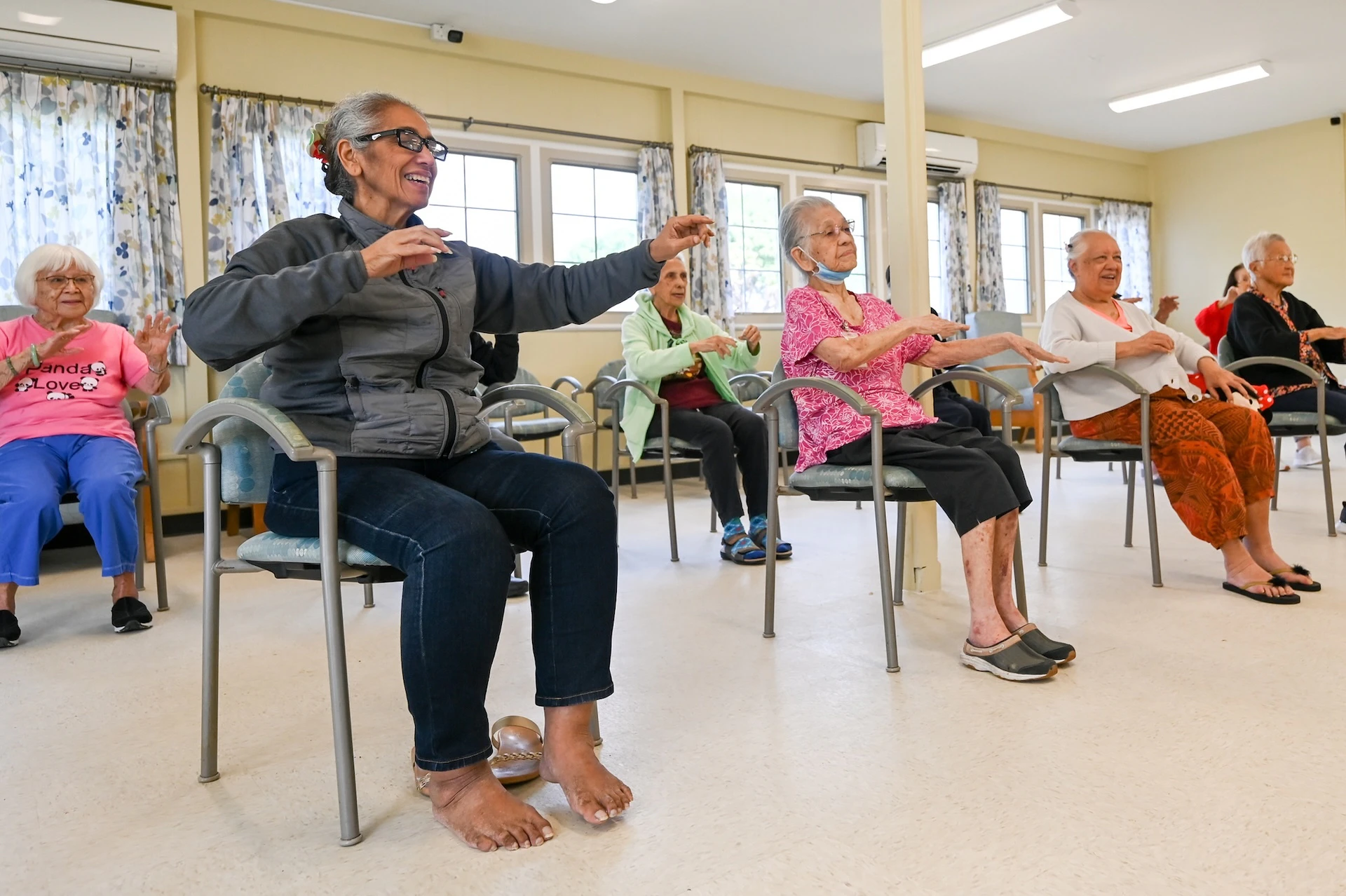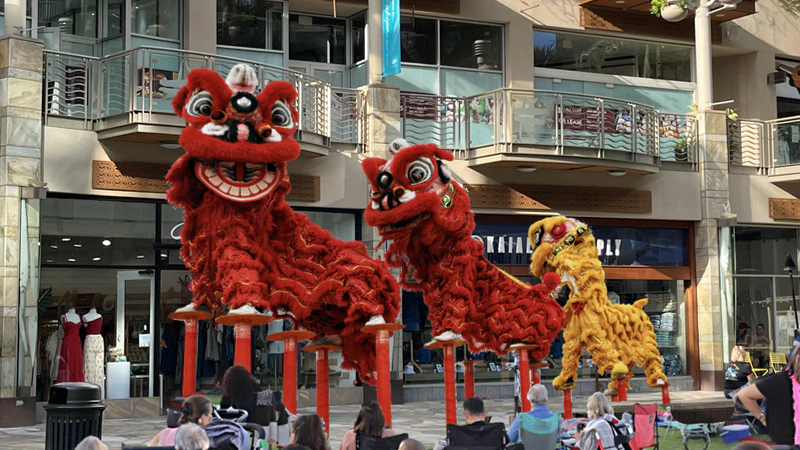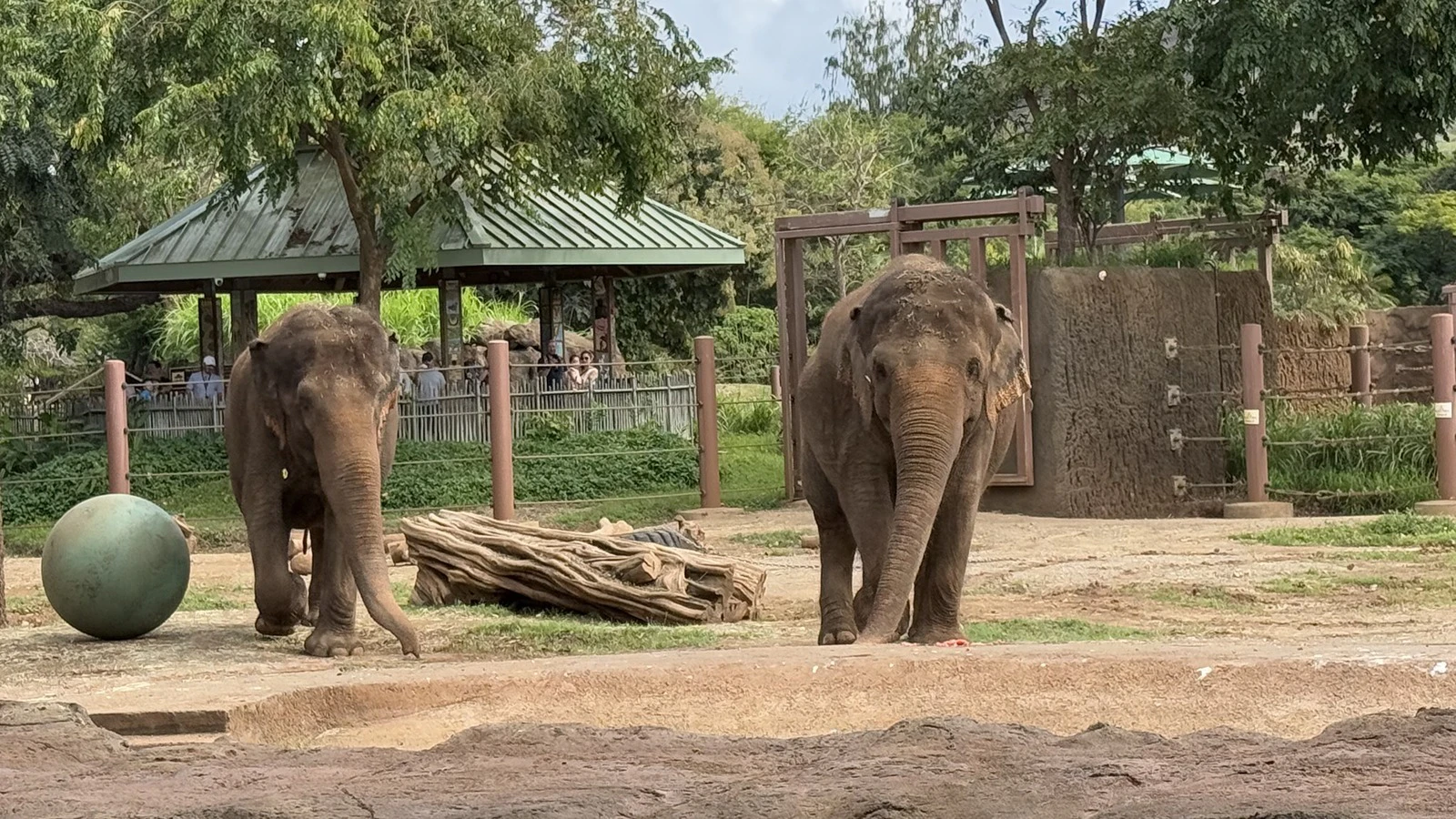Keolamaikalani "Keola" Dean will make three years as the CEO of King Lunalilo Trust and Home on April 17.
Prior to assuming this role, he worked supporting Native Americans’ health needs and tribal policy for the Washington state Medicaid agency, and would visit Oʻahu to take care of his mother with dementia.
“When I came home to Honolulu in late 2021, I was at the beach one day and had this overwhelming sense of urgency – it was my aumakua telling me that I needed to come home. And so, I told them, I'd always wanted to come home, but I could never figure it out financially. I said, ‘I don't know how, but if you show me the way, I will come home.’”
Soon after, he said he saw an advertisement for the job on television, which was later affirmed by a friend. “She said, ʻYou need to apply. This has you written all over it.’ And so, that's what started my journey here,” he recalled.

A Kamehameha Schools graduate, Dean “grew up on Homestead in Nānākuli as the only child of a single mom,” he said adding, “My grandparents played a big role in raising me, and that's where I learned a lot of my values, like aloha and also striving for excellence.”
He later went on to receive a bachelor’s from Harvard University, master’s in accounting from Bentley University, Juris Doctor from Stanford Law School, and Master of Health Policy & Administration from Washington State University.
As he went through the application process, Dean said, "I started realizing I had all of the pieces that I needed from my 30-plus year career as an attorney, a CPA and with health policy, to try to make a difference at King Lunalilo Trust.”
ASD asked what he’s most proud of, what’s next for the organization and how it will impact the local community, as well as who was King Lunalilo and what is his legacy today.
What was King Lunalilo known for and how was the charitable trust established? William Charles Lunalilo was born in 1835 and his nickname was "Lokomaika'i,” which means generous. As an adult, he was one of the largest landholders in the Hawaiian Kingdom. Only the king had more land. His holdings were over 400,000 acres. (To put that in perspective, Kamehameha Schools has more than 350,000 acres statewide today.) He allowed people to use his land. No rent. Known as the people’s king, he became the sixth monarch, and first elected aliʻi, in 1873, who died one year later. The charitable trust is his legacy.
[King Lunalilo’s will charged the original Trustees with selling the estate’s land to build housing for “the poor, destitute and infirmed Native Hawaiian, giving preference to seniors,” the website notes. “While continuing to focus on serving Hawaiians, Lunalilo Home has opened it doors and services to non-Hawaiians, and provides compassionate, quality care for kūpuna of all ethnicities.”]
We’re a Native Hawaiian organization established in 1883 whose mission is “to advance King Lunalilo’s wish to shelter and support those in need.”
Looking back on your three years as CEO, what are you most proud of so far? Residential care is very expensive and we have a modest endowment. One of the things I'm proud of is that we were able to secure funding last year to bring more Native Hawaiians into our programs.
We also completed the renovation of the Adult Day Center, which will serve 50 seniors a day (was previously 42 altogether). That was a big effort because we really had to patch together the funding [mostly grants and donations] to make that happen. We're also going to have a grand opening this summer, for the Lokomaika'i Heritage Center, a new cultural center on our campus that will offer cultural classes from lauhala weaving, lei making, hula classes and more.
We don't maintain a waitlist and do offer financial aid to those who need it. Depending on the level of care, cost to families for the Adult Residential Care Home, which accommodates more than 40 seniors, starts at $7,000 per month. Our largest source of revenue continues to be our program fees, supplemented with various donations and grants. [According to King Lunalilo Trust’s most recent Annual Report, the organization had $13.3 million in total liabilities and net assets as of December 2022.]
What are your plans for growth? We are looking at redeveloping our five-acre campus in Hawaʻi Kai, with an affordable independent kūpuna rentals project underway. My goal is to move this beyond the planning phase, which we’re still in, and get request for proposals by April 9, to start working on designs and renderings.

The next phase is to build a new long-term care facility on our campus. Our current facility was built in the early 1900’s, but it's gone through several renovations, with the most recent one completed in 2002. Itʻll be a larger facility kept at the low-rise feel of the neighborhood – weʻre not looking to go big, rather stay within character, driven by our values and purpose as a member of the Hawaiʻi Kai community. So that, and a few other projects in the works, that have not gone out to the public yet. At this time, we’re not ready to engage the community in fundraising/capital campaigns, but we’re moving closer to sharing our plans.
How do you plan to grow your staff? Our biggest challenge is staffing – as is the case for every health care center in the state. Our need is for more Certified Nurse Aides and nurses, so we’re working on our own training program to wrap around the state licensing program, which will help build soft skills with special focuses on long-term and dementia care, while integrating Hawaiian culture and values.
We have a large volunteer base through local nursing schools, which are important for our kūpuna care services. We are continuing to build the infrastructure to support more volunteers coming to campus.
What impacts on the local community now most excites you for the future? We’re already in that silver tsunami, and it’s only getting worse. Hawaiʻi Medicaid rates are not sustainable. We’ve explored hospice, which are typically private pay and don't accept Medicaid. So we’re trying something new – we’re trying to build a kūpuna campus. … I have not heard of any organization looking to do something like what we are doing: Having a combination of services on one campus, where we're still then focused on our activities, community and cultural events, to provide holistic care for the community.
I want to share the importance of community. We had a long-time resident who had fallen in love with another resident here at Lunalilo Home. Her family was worried about Covid-19, so they pulled her from the facility. Understandable, you can't fault them. But what they learned was that they could not take care of her. So, they brought her back to Lunalilo in less than a year. During that time away, her dementia had accelerated, so she did not remember her boyfriend. Heartbreaking. And she passed away several years ago. So what's perhaps even more important is the connections between the kūpuna and their community. Because it’s those connections – complicated, complex layers of social interactions – that keep one's mind active, that helps delay or even forestall dementia. That is something that I have seen in my own personal life with my mom and at Lunalilo Home. Yes, family or aging in place can be good, but let's make sure our kūpuna are not spending their final days stuck in the house.
Kelsey Kukaua Medeiros can be reached at kelsey@alohastatedaily.com.





